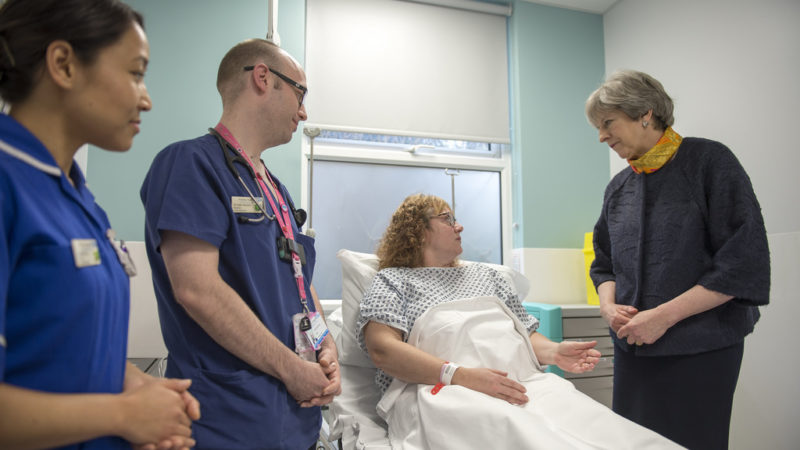This government's acceptance that there might even be no resolution of the Brexit dilemma spells trouble to our public health service. Dr Louise Irvine explains.

Chris Hopson, chief executive of NHS Providers was right to raise the issue of the lack of preparedness of the NHS for a “no deal” or hard Brexit.
The risks to the NHS and wider UK population health are grave and need to be rapidly addressed.
These include:
- The threat to already inadequate NHS and social care staffing levels if we are no longer able to recruit EU staff or assure current staff they have a secure future in the UK
- Significant delays and increasing costs in obtaining medicines and health technologies, in particular medicines with a short shelf life such as insulin, as well as radio-isotopes for cancer testing and treatment. This includes risks to the import of human tissues such as transplant organs which currently have approval for very swift transit
- Significant delays in accessing new drugs as a consequence of leaving the European Medicines Regulatory Agency
- Loss of cross border collaboration to protect against public health threats such as infectious disease pandemics and anti-microbial resistance
- Loss of medical research funding (of which the UK is a net beneficiary) and research collaboration, including for rare diseases
- Loss of reciprocal health care for British people travelling in Europe, and the risk that UK pensioners living in Europe will lose their rights to free health care and be forced to return to the UK
- Weakening of regulations to ensure food, air and water quality and chemicals, pesticides, waste disposal and climate change protection
- Risks to the health of people in Northern Ireland as a hard border will mean that staff and patients will no longer be able to cross the border freely to provide or receive health care
The adverse economic impact of Brexit could harm the poorest people and the poorest areas of the UK the most, affecting people’s physical and mental health and leading to widening social and health inequalities.
Those who argue that one advantage for the NHS of leaving the EU will be that it won’t be subject to competition law are wrong. It’s only the NHS in England which is subject to EU competition law: not Scotland or Wales. That is because in Scotland and Wales there is no competitive contracting of NHS services.
So the way to protect the NHS in England is to renationalise it.
Being a member of the EU does not prevent a country having nationalised industries or services. Competition law is part of any of the likely trade deals the UK will have to make with other countries, such as the USA, and a marketised English NHS will be included. So it’s domestic law, not EU law, that is putting the NHS at risk from international trade deals.
There is a growing movement for a “People’s Vote” on the final exit deal.
The British Medical Association, the Royal College of Nursing and the Royal College of Midwives have all supported such a call, because the threats to the NHS and the public health of a ‘no deal’ or hard Brexit are so serious that the British people should have the chance to reconsider their decision.
Dr Louise Irvine is a GP and the National Health Action Party secretary. She is a member of British Medical Association Council and writes in personal capacity.




One Response to “Here’s why a ‘no deal’ would be terrible for our NHS”
razaq ali
I need guest post on your site ” https://leftfootforward.org
What is guest post price with do-follow back link
Let me know
Waiting